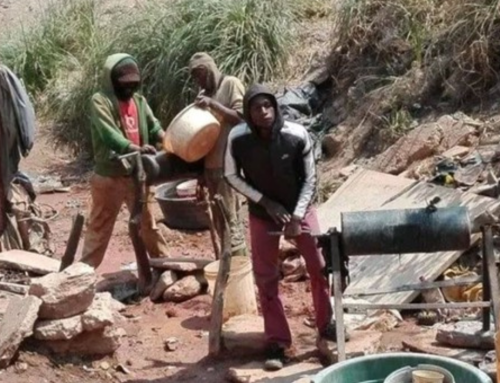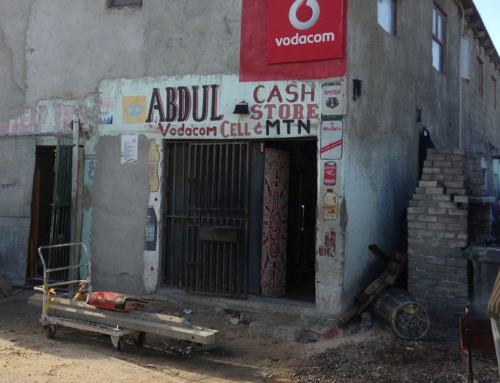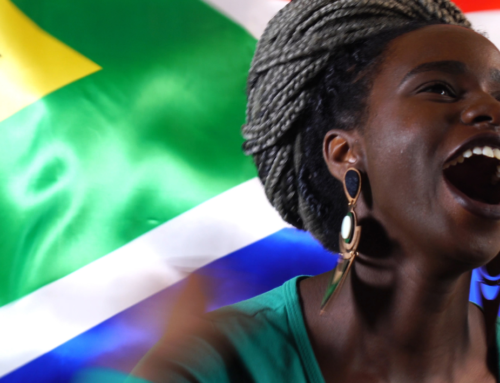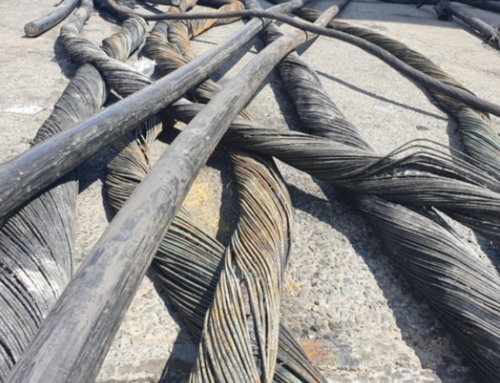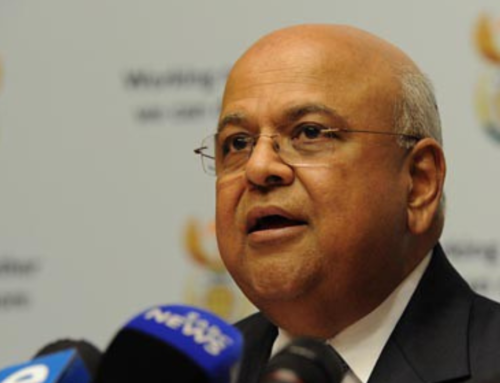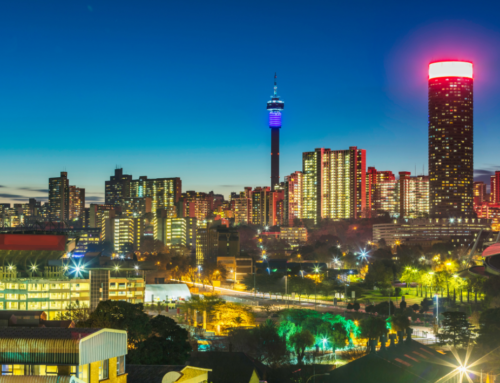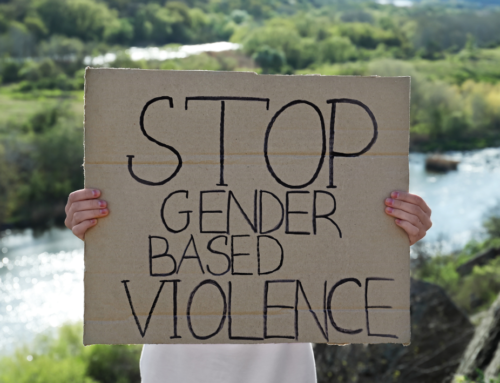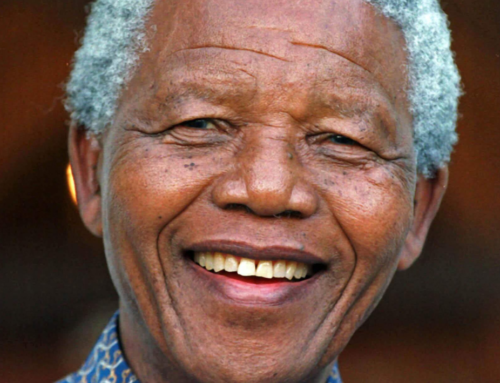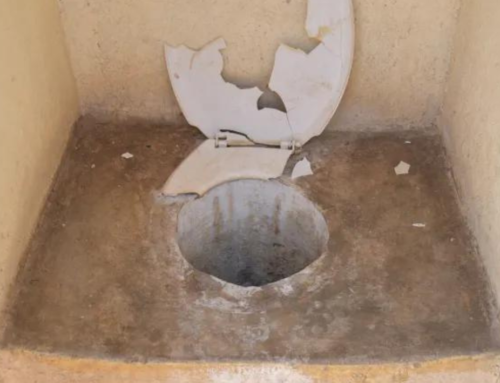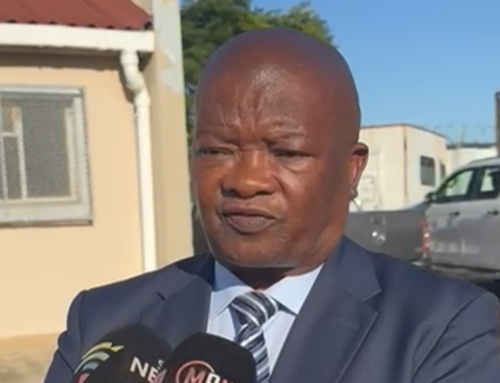 No matter at which statistic or projection one looks, South Africa’s economy is in acute trouble and is being effectively paralyzed by government, despite their promises to the contrary. Our economy was standing with one foot in the grave before Covid-19 and the around US$10 billion South Africa borrowed from the World Bank, the BRICS New Development Bank, the African Development Bank and the International Monetary Fund (IMF), in the name of fighting the Coronavirus, is going to dig us, but mostly our children, into a deeper economical grave. To place things in perspective, it is reported that, South Africa’s debt levels will exceed 100% of gross domestic product by 2024/25. Have we not sold our souls to these banks, and for what?
No matter at which statistic or projection one looks, South Africa’s economy is in acute trouble and is being effectively paralyzed by government, despite their promises to the contrary. Our economy was standing with one foot in the grave before Covid-19 and the around US$10 billion South Africa borrowed from the World Bank, the BRICS New Development Bank, the African Development Bank and the International Monetary Fund (IMF), in the name of fighting the Coronavirus, is going to dig us, but mostly our children, into a deeper economical grave. To place things in perspective, it is reported that, South Africa’s debt levels will exceed 100% of gross domestic product by 2024/25. Have we not sold our souls to these banks, and for what?
In the letter of intent to the IMF, government committed to introduce debt sustainability measures yet the United Democratic Movement (UDM) has been calling on government to introduce fiscal rules (debt management) since the end of 2018.
The UDM furthermore believes that borrowing US$10 billion is one thing, and that seeing that this vast amount of money is spent in the right way, is another… especially given that government’s pre-Coronavirus modus operandi has been marred by rising levels of corruption and endemic wasteful expenditure.
We must remember that the combined fruitless and wasteful expenditure for both completed and outstanding audits at municipalities was R3.12 billion, just for the 2018/19 financial year, and irregular expenditure had increased to R32.06 billion. When counting this with the provincial and national governments’ sins, we annually lose about R80 billion due to government failures. Also, let us remind ourselves, that President Ramaphosa is on record saying that State Capture cost South Africa R500 billion, and there are those who argue this is a conservative estimation.
South Africans have already coined a new term, “coronapreneurship” and as much as President Cyril Ramaphosa talked tough about fighting corruption, we are of the view that a leopard does not change its spots, and to abuse another saying, the proof will be in the pudding.
The UDM is extremely worried for South Africa’s socio-economic future and the impact this omnishambles will have on our people, but especially on the lives of the formerly disadvantaged and poor South Africans. The reality is this, if South Africa had managed its operations and money properly, we would not have needed to borrow any money from anyone. That we are in this position is the African National Congress government’s fault.
Furthermore, the UDM is of the view that the Adjustments Appropriations Bill is nothing but a case of robbing Peter to pay Paul and the repercussions of reducing the ten currently affected departments’ budgets will be felt for years to come.
The reduction of income across the various departments “due to restricted economic activity imposed by the Covid-19 pandemic” is cause for serious concern. However, using language which states that a virus had imposed restrictions on economic activity is a bit of a reach, as these are surely the decisions of the Ramaphosa administration.
The main areas of concern for the UDM (both for the immediate future and on the long term) is the reduction in various infrastructure development and maintenance grants and provincial road maintenance, the non-filling of vacant posts across various departments, the reduction in the Integrated National Electrification Programme and large reductions in the urban and human settlements grants.
Specifically, the R2.4 billion reduction in the Department of Agriculture, Land Reform and Rural Development budget baseline is a problem as this will surely impact on food security and the UDM believes that agriculture, as a main driver of the economy, should not be targeted. Tourism, which the UDM argues is one of South Africa’s main economic contributors and job-generating industries, is already vanishing and will suffer even more with the R1 billion (40.3%) cut to its budget.
The massive reallocations in the education budgets are mindboggling, especially the proposed delay in the funding of the Historically Disadvantaged Institutions Development Programmes and Generation of Academic Programme and Technical, and impact on the Vocational Education and Training (TVET) colleges by delaying the operationalisation of new colleges and deferring the intake of the Centres of Specialisation Programme. The reduction on the Education Infrastructure Grant of R2 billon for infrastructure maintenance at schools, the eradication of mud schools, etc. is totally unacceptable. Once more, it is the poor and formerly disadvantaged that are paying the price.
The proposed downward adjustment of the Department of Small Business Development’s 2020/21 main appropriation by R67 million, even if it is justified as being “non-essential goods and services”, is a case of a government shooting itself in the foot. Taking away R39 million from the Township Entrepreneurship Fund makes no sense either.
The UDM is concerned that the adjustment budget shows the suspension of R257 million at the Department of Water and Sanitation. We also noted that, in terms of the department’s non-financial performance, 26% of its targets were not achieved as at the end of the fourth quarter of the 2019/20 financial year. This is a patent indication that a key service is not being delivered and it will be negatively affected by the proposed adjustment. Considering this turn of events, it is ironic that we must wash our hands as a tool to combat the spread of Covid-19.
We noted that R3 billion has been earmarked for the recapitalisation of the Land Bank, but the UDM is of the view that the perennial bail-outs of the ailing, corruption-ridden, State Owned Enterprises (SOEs) has a knock-on effect on service delivery and that their reforms are long overdue. The Ramaphosa administration must find the political will to definitively deal with corruption and maladministration to bring SOEs back on course, streamlining and even possibly privatising them.
The UDM appreciates that the Coronavirus pandemic has become the government’s central priority, but it cannot make sacrifices – on behalf of the nation – that are short-sighted and might end up being a case of throwing the baby away with the bathwater where long-term projects are concerned.
Issued by:
Mr Bantu Holomisa, MP
UDM President



